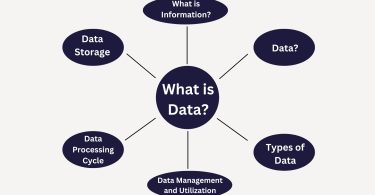AI ethics, within the realm of technological progress, plays a pivotal role in shaping a world characterized by reduced bias and heightened fairness.
Let’s explore a real-world scenario in order to comprehend AI ethics. In December 2022, an app by the name of Lensa AI used artificial intelligence to turn ordinary images into eye-catching profile pictures in cartoon style. However, as the software failed to properly recognize or reward the original artists in charge of the digital artwork upon which the AI was trained, ethical questions emerged. The situation worsened when it was found that Lensa had unlawfully taken billions of images from the internet.
ChatGPT and AI Ethics:
Another example is ChatGPT, an AI model that enables user involvement through questions. ChatGPT analyses the web for information and responds with writings, Python code, or suggestions. The ethical quandary is raised when people use ChatGPT to write essays or win coding competitions. This scenario is similar to the Lensa case, but the content is text-based rather than visual.
The examples provided an impression of the complex world of AI ethics. The importance of AI ethics has increased dramatically as a result of AI’s quick spread into almost every industry and its significant contributions, notably in sectors like healthcare. The most important issues revolve around maintaining AI’s objectivity and developing plans to reduce potential hazards. There are many potential answers, but in order to promote beneficial global outcomes, parties must act ethically and work together.
Defining AI Ethics: Components and Implementation.
The term “AI ethics” refers to the range of factors that different stakeholders, from engineers to government officials, must consider in order to ensure the ethical development and application of artificial intelligence technology. This requires bringing safety, security, humanism and environmental responsibility first in one’s strategy.
AI ethics include activities including eliminating bias, protecting user privacy and data, and reducing environmental risks. Corporate codes of ethics and governmental regulatory frameworks are the two main ways AI ethics are put into reality. While setting the foundation for ethical AI practices in organizations, such approaches address ethical AI concerns at the international and national levels.
Major technological firms today, including Google and Meta, are putting together specialized teams to address ethical issues raised by the large amounts of data they collect. Governmental and international organizations have simultaneously started to implement legislation based on academic study.
The Significance of Ethics in Artificial Intelligence:
Because artificial intelligence technology attempts to imitate or replace human intelligence, as suggested by its name, artificial intelligence, AI ethics assumes the greatest significance. Attempts by technology to mimic human cognition inevitably lead to problems.
AI projects built on flawed or biased data can yield detrimental consequences, especially impacting minority groups and individuals. Furthermore, hastily constructed AI algorithms and models can pose difficulties for engineers and product managers in keeping pace with changes and mitigating risks associated with AI decisions.
Fostering ethical principles for responsible AI development and utilization necessitates collaboration among industry stakeholders. We must closely examine how social, economic and political aspects intersect with AI, aiming to find ways for machines and humans to peacefully coexist.
AI Ethics in Entertainment: Dilemmas through Literature, Film and Television.
The exploration of ethical dilemmas in artificial intelligence is not confined to the tech realm; it also permeates the realms of literature, film and television. Science fiction, through books, films and TV shows, has long contemplated the ethical implications of AI.
Let’s explore the 2013 film “Her,” directed by Spike Jonze, where a computer user develops romantic feelings for his operating system due to her captivating voice. It provides an amusing insight into how technology may affect human lives and test the limits of affection, but it also emphasizes the necessity for serious contemplation and thought as these developing systems impact our society.
Ethical Difficulties in Artificial Intelligence: Examining Bias, Privacy Intricacies and Environmental Implications.
Real-life scenarios provide poignant examples of the ethical challenges that underscore the world of AI. Here are some of these challenges:
AI and Bias: AI becomes prone to bias when it cannot collect data that truly reflects the diversity of the population. An alarming instance occurred in 2018 when Amazon faced scrutiny over its AI recruiting tool. This tool systematically downgraded resumes containing terms like “women,” such as “Women’s International Business Society,” effectively discriminating against female candidates and exposing the tech giant to legal risks.
AI and Privacy: As previously demonstrated by the Lensa AI case, AI heavily relies on data extracted from internet searches, social media posts, online purchases, and more. While this data enhances personalization, concerns arise regarding the legitimacy of consent when companies access our personal information without our explicit approval.
AI and the Environment: Some AI models are very large and require a lot of energy to train on datasets. Although progress has been achieved in the development of energy-efficient AI methods, environmental ethics remain capable of being incorporated into AI-related legislation.
Promoting Ethical AI: Legislation, Education and Technology in Focus.
We need to address legislation, education and technology in order to create a more moral environment for AI. Regulatory frameworks are essential for ensuring that AI technology advances rather than degrades society. Governments all over the globe are progressively adopting moral AI regulations that specify how businesses should handle legal ramifications when prejudice or additional adverse consequences emerge.
Anyone working with artificial intelligence (AI) must be aware of the risks that are involved and the possibility of negative effects of unethical or fake AI. Effective risk mitigation depends on making resources available and approachable.
According to popular belief, technology can be used to spot unethical behavior in various kinds of technology. AI tools have the ability to judge the truthfulness of video, audio or text content and determine whether it is real or fake (for example, recognizing hate speech on social media). These tools frequently surpass human talents in terms of accuracy and efficiency when it involves recognizing biased and unethical data sources.
Conclusion:
In conclusion, AI ethics is paramount in our technology-driven era. Real-world cases like Lensa AI and ChatGPT spotlight its significance. Collaboration is essential as we tackle bias, privacy and environmental issues. Leading companies and global organizations are actively involved. AI ethics transits sectors like healthcare and entertainment, underscoring its far-reaching impact. To progress, we must prioritize ethical considerations, adapt to evolving challenges and work together to ensure a more ethical AI future.



